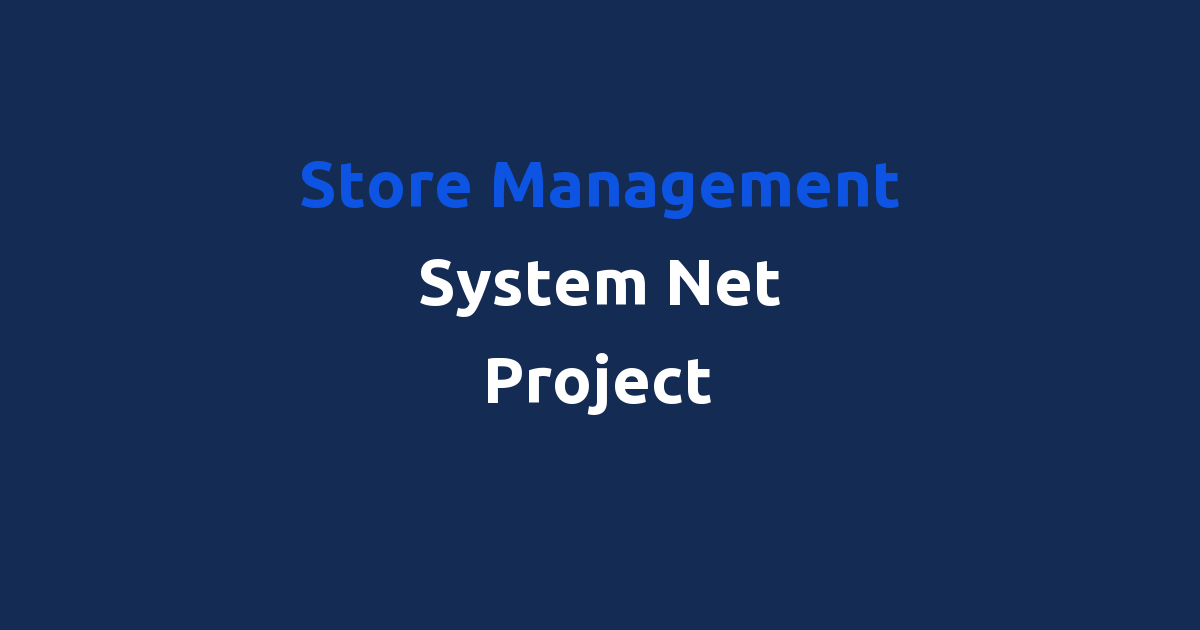This project is a net-based store management system.
Store Management System .Net Project
Introduction
In the fast-paced retail industry, the management of a store is crucial for its success. With the increasing competition and demands of customers, it has become essential for stores to adopt efficient systems to manage their operations. This project focuses on the development of a Store Management System using .Net technology to streamline the store’s processes and improve overall efficiency.
Problem Statement
The traditional methods of managing a store involve manual processes that are time-consuming and prone to errors. These processes include inventory management, sales tracking, employee scheduling, and customer management. The lack of automation in these processes leads to inefficiencies and hinders the store’s growth potential.
Existing System
The current store management systems rely heavily on manual data entry and paper-based records. This outdated system makes it difficult to track inventory accurately, resulting in stockouts or overstock situations. Moreover, manual sales tracking makes it challenging to analyze sales data and make informed decisions. Employee scheduling is also a cumbersome task that is prone to errors, leading to understaffing or overstaffing issues.
Disadvantages
The disadvantages of the existing system include:
1. Inefficient inventory management
2. Lack of real-time sales tracking
3. Error-prone manual processes
4. Difficulty in analyzing data
5. Ineffective employee scheduling
Proposed System
The proposed Store Management System will address these issues by automating key processes and providing real-time data insights. The system will include modules for inventory management, sales tracking, employee scheduling, and customer management. Using .Net technology, the system will be user-friendly, scalable, and customizable to meet the store’s specific requirements.
Advantages
The advantages of the proposed system include:
1. Improved inventory management
2. Real-time sales tracking
3. Automation of manual processes
4. Data analysis for informed decision-making
5. Efficient employee scheduling
Features
The Store Management System will include the following features:
1. Inventory Management: The system will track inventory levels, notify when stock is low, and generate purchase orders automatically.
2. Sales Tracking: Real-time tracking of sales data, including trends, top-selling products, and customer preferences.
3. Employee Scheduling: Easy-to-use scheduling module for assigning shifts, managing time-off requests, and tracking employee performance.
4. Customer Management: Database for storing customer information, purchase history, and preferences for personalized marketing campaigns.
5. Reporting and Analytics: Customizable reports for analyzing sales data, inventory levels, and employee performance to make data-driven decisions.
Conclusion
In conclusion, the development of a Store Management System using .Net technology will revolutionize the way stores operate by streamlining processes, improving efficiency, and providing valuable insights for decision-making. By addressing the shortcomings of the existing system and leveraging the advantages of the proposed system, stores can enhance their competitiveness and achieve sustainable growth in the retail industry.

